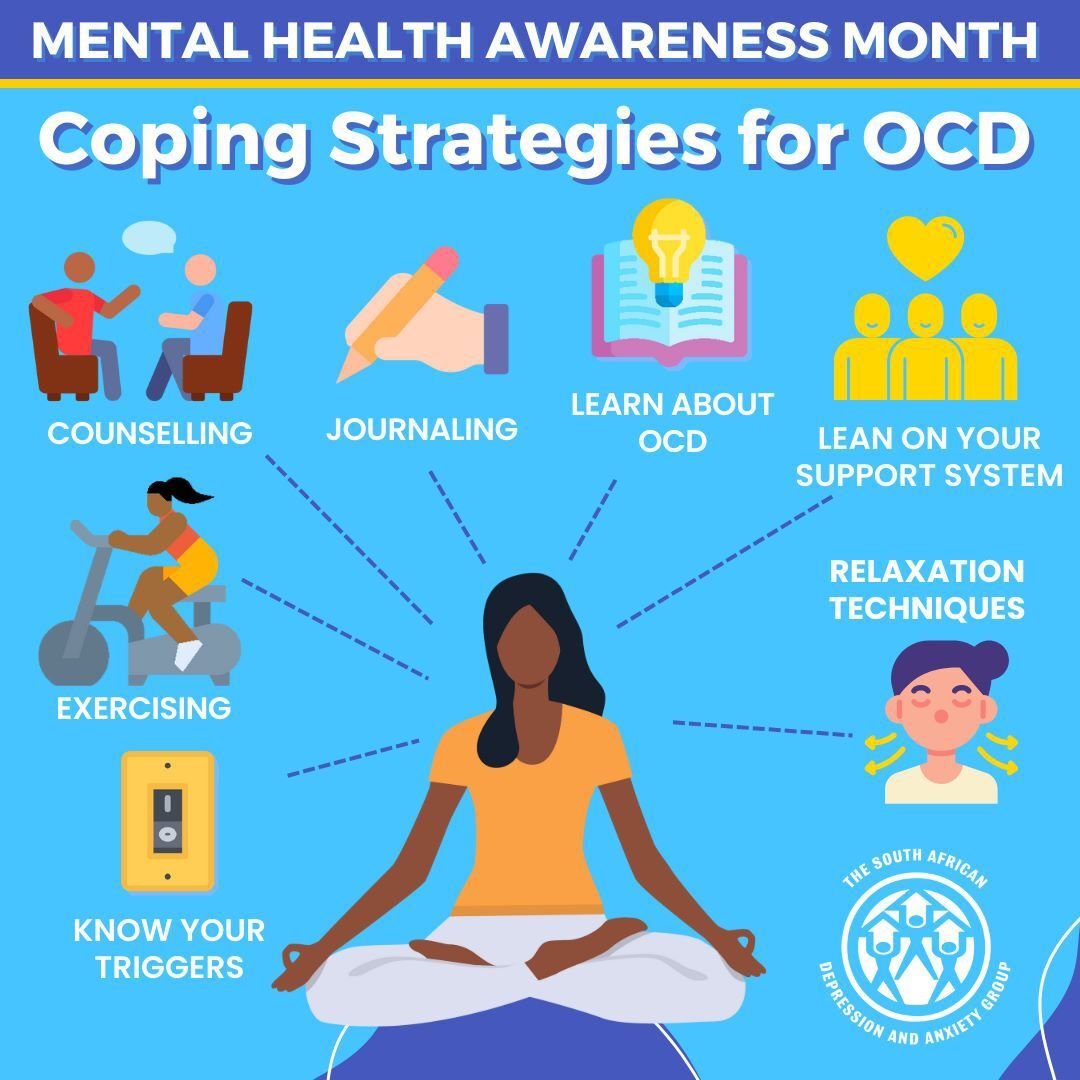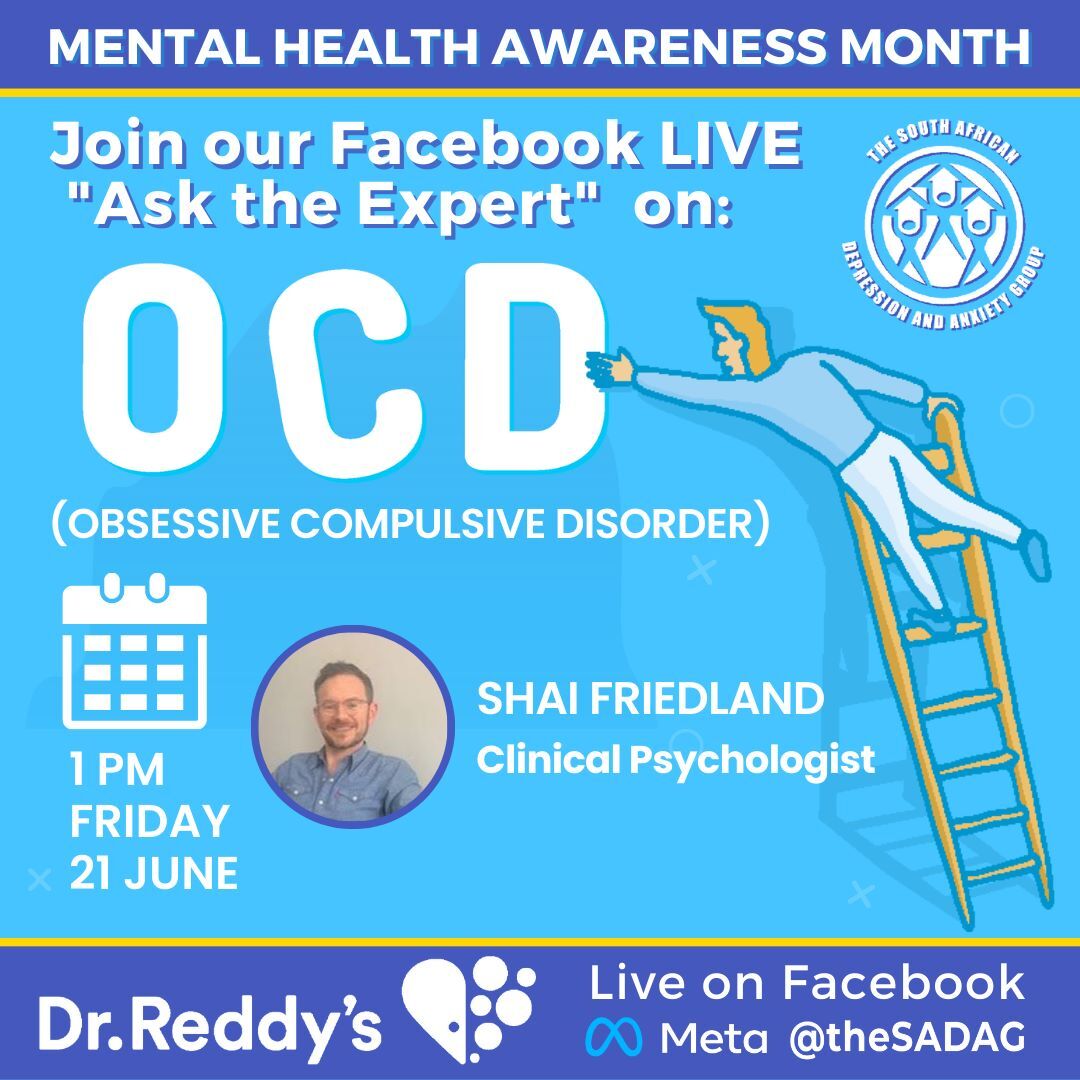LIVING WITH OCD (17 July 2023)
Managing symptoms and improving quality of life
This week we will be focusing on Obsessive-Compulsive Disorder (OCD) awareness. With the aim of dispelling misconceptions and helping to understand, The South African Depression and Anxiety Group hope to bring attention to the challenges faced by individuals living with OCD while promoting Mental Health and Support.
OCD affects millions of people worldwide, causing distressing and worrying thoughts, which can lead to repetitive behaviours or rituals. The disorder remains widely misunderstood despite its prevalence, perpetuating stigma and hindering access to appropriate treatment.
"The term “I am/you are so OCD” has become a part of everyday language and vocabulary and it seems to be something that I for one hear regularly. The term often depicts someone who likes things to be “neat”, “clean”, and/or “in order”. However, despite this term being thrown around, much of the population does not know what OCD really is and how severely debilitating it can be for an individual who has a diagnosis of OCD”, says Clinical Psychologist and SADAG Board Member, Shai Friedland
People with OCD may have symptoms of obsessions, compulsions or both.
Obsessions are repeated thoughts, urges or mental images that can also cause Anxiety.
Some of the symptoms of these are:
• Worries about yourself or other people getting hurt.
• Constant awareness of blinking, breathing, or other bodily sensations.
• Worries about germs and dirt touching your body.
Compulsions are repetitive behaviours that a person with OCD feels the urge to do in response to an obsessive thought.
Compulsions may manifest in some of the following ways:
• Excessive cleaning and handwashing.
• Ordering and arranging things in a particular way.
• Repeatedly checking on things, such as checking to see if the door is locked or the oven is off, over and over again..
• Mental compulsions such as counting, undoing ‘bad thoughts”, and compulsively praying.
Through OCD awareness, we hope to shed light on this often-misunderstood condition. There is treatment available if you are diagnosed with OCD. Here are some easy coping strategies. Keep them and share with your loved ones as well.

On the 21st of July at 1 pm, we will be hosting a FREE Facebook Live “ Ask the Expert” chat with expert and Clinical Psychologist Shai Friedland who will share some insight on living with OCD and how families, friends and loved ones can be impacted. We will also be focusing on dispelling myths and stigmas around OCD. Join us on our Facebook Page for this session for an opportunity to gain a better understanding. Together, we can help break down barriers, reduce stigma, and create a more supportive environment for individuals living with OCD to thrive.

For more information, please visit our website at www.sadag.org. We are also available if you need help on our FREE helpline on 0800 456 789 (24hrs), or SMS 31393 WhatsApp 087 163 2030 (8 am-5 pm).